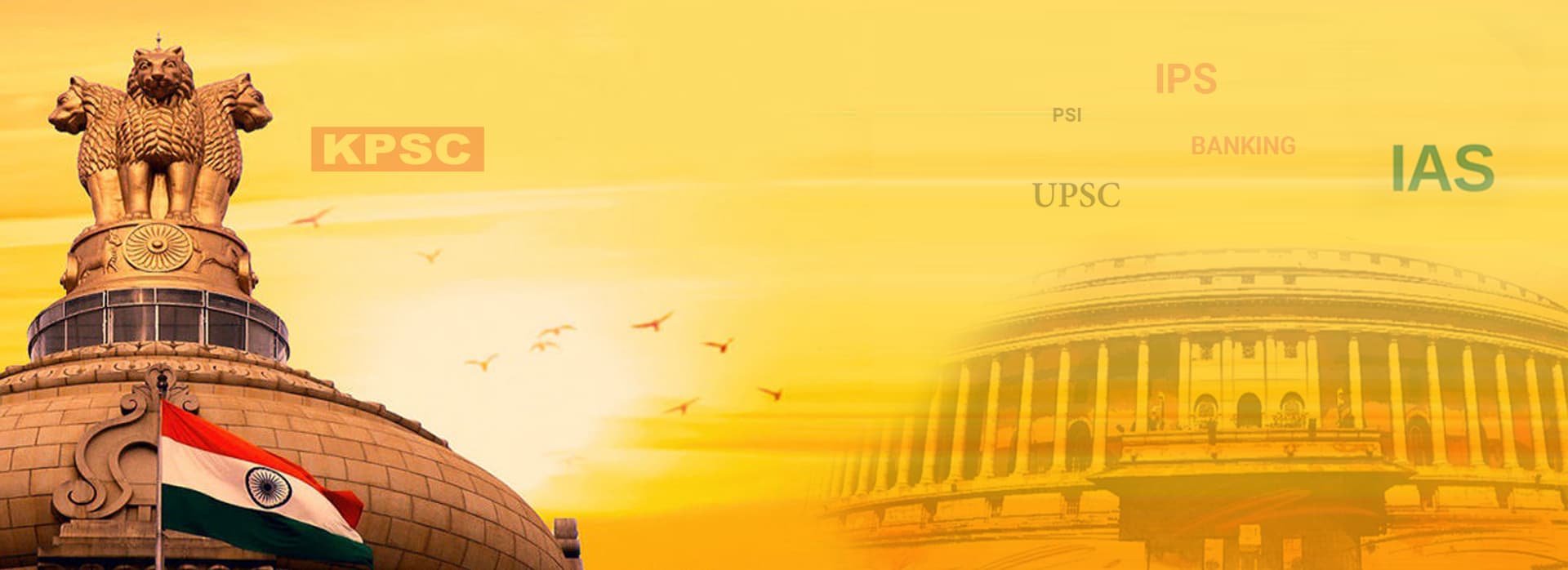Frequently Asked Questions
Universal Coaching Centre has always been assisting and guiding students to their career goals. Are you facing any trouble or need a proper guidance for your preparations?
We are here to support you.
1. What is the full form of UPSC?
UPSC stands for Union Public Service Commission.
2. What is UPSC?
UPSC is the central agency responsible for recruiting candidates for various civil services like Indian Administrative Service (IAS), Indian Police Service (IPS), Indian Foreign Service (IFS), etc. It conducts the Civil Services Examination for these recruitments and determines the IAS officer salary per month for different posts, including the IAS salary in India and other civil service compensation packages. The UPSC salary structure is designed to attract top talent to public service roles.
3. What are civil service? How do you enter the Indian civil service?
Civil services refer to professions such as IAS, IPS, IFS, IRS, etc., which are directly related to public service in India. These are considered Group A Services under the government, while there are also Group B Services with different roles and responsibilities. Entry into the Indian civil service is through the UPSC Civil Services Examination, which consists of three phases: Preliminary, Mains, and Interview. The UPSC syllabus covers a wide range of topics to test candidates’ knowledge and aptitude. Successful candidates can expect a competitive UPSC salary per month, which varies based on the specific service and position.
4. What is IAS? How can you pass the IAS exam and become an IAS officer?
IAS stands for Indian Administrative Service, one of the prestigious All India Services. To become an IAS officer, candidates must clear the UPSC Civil Services Examination comprising Preliminary exam, Main exam, and a personal interview. The IAS full form salary is one of the most attractive aspects of this career, with various allowances and benefits based on the recommendations of the 7th Pay Commission. The starting salary of IAS officers is competitive, reflecting the importance and responsibilities of the role.
5. What is the Indian Administrative Service (IAS)?
IAS officers serve in various administrative roles such as District Magistrate, Sub-Divisional Magistrate, commissioners, heads of public units, chief secretaries, and Cabinet Secretary. It is the administrative arm of the All India Services. The job profile of an IAS officer includes policy-making, implementation of government schemes, and managing district-level administration. The IAS monthly salary varies depending on the position and years of service, with the DM salary per month being particularly attractive for those in district administration roles.
6. What is the salary of an IAS officer?
The IAS salary consists of a basic pay along with various allowances such as Dearness Allowance (DA), Travel Allowance (TA), and House Rent Allowance (HRA). The total salary increases with the officer’s experience and rank. For example, the highest-ranking IAS officer, the Cabinet Secretary, receives a base salary of approximately ₹56,100 per month, excluding allowances. The cabinet secretary salary is the highest in the IAS cadre, reflecting the position’s importance. Overall, an IAS officer’s salary package is competitive and improves significantly over the course of their career. The IAS salary after 5 years shows a notable increase, and the IAS salary after 10 years can be substantially higher due to promotions and increments.
7. How to become an IAS officer?
To become an IAS officer, one must clear the UPSC Civil Services Examination, which has three stages: Preliminary exam, Main exam, and Interview. The eligibility criteria include age limits and educational qualifications. Successful candidates can look forward to a rewarding career with a competitive starting salary of IAS officers.
8. What educational qualifications is required to take the IAS exam?
A candidate must hold a degree from a recognized university or an equivalent qualification. This educational qualification is essential for UPSC posts. Final year students awaiting results are also eligible. The degree can be regular or distance mode.
9. What is the age limit and number of attempts to write the UPSC Civil Services Exam?
Minimum age: 21 years (as of August 1 of exam year)
Upper age limit: 32 years for General category, 35 years for OBC, 37 years for SC/ST, with relaxations for physically disabled and ex-servicemen.
Number of attempts: General – 6, OBC – 9, SC/ST – Unlimited. Physically handicapped candidates in General category get 9 attempts till age 42.
10. How are attempts for the Civil service examination calculated?
An attempt is counted if the candidate appears for any paper of the Preliminary exam. If the candidate applies but does not appear, the attempt is not counted.
11. What is the latest syllabus for the IAS and KAS exams?
The syllabus includes Preliminary and Main exam syllabi for UPSC and KPSC, available through official notifications and websites. The UPSC syllabus covers a wide range of subjects including general studies, optional subjects, and essay writing.
12. Full form of KPSC?
KPSC stands for Karnataka Public Service Commission.
13. What is the KPSC?
KPSC is the government agency that recruits candidates for various services in Karnataka, including the Karnataka Administrative Service (KAS). The salary structure for KAS officers is similar to that of IAS officers but may vary based on state government policies.
14. What is the age limit and the number of attempts to take the KPSC civil servant examination?
Minimum age: 21 years
Maximum age: 35 years for general category, with relaxations for other categories
Number of attempts: General – 5, OBC – 7, SC/ST/Cat1 – Unlimited attempts subject to age limit.
15. Which educational qualifications do you need for the KAS exam?
Candidates must hold a degree from a recognized university or equivalent qualification. Attempts are counted only if the candidate appears for the Preliminary exam. This educational qualification is similar to the UPSC eligibility criteria.
Additional Information on IAS Salary and Career Growth:
The IAS salary per month after 5 years of service increases significantly due to promotions and increments. The IAS officer salary after 10 years can reach the joint secretary pay level, with a corresponding increase in pay scale and allowances. The IAS pay level progresses through various stages, from entry-level to senior positions in the Central Secretariat or State Secretariat.
IAS officers also receive various perks and benefits, including government accommodation, official vehicles, and healthcare benefits. The basic pay of an IAS officer increases with each promotion, and they also receive grade pay based on their position. The grade pay system, introduced by the 7th Pay Commission, is an integral part of the salary structure. The IAS basic pay, along with various allowances and grade pay, forms a substantial part of the total compensation package.
It’s worth noting that while the IAS salary is substantial, other civil services like IPS (Indian Police Service) and IFS (Indian Foreign Service) also offer competitive salaries. The IPS salary and IFS salary structures are similar to the IAS pay scale, with slight variations based on the nature of the job.
For those aspiring to join the civil services, it’s important to understand that beyond the attractive IAS officer salary, these roles offer significant opportunities for career growth and the chance to contribute to nation-building at various levels of governance. The job profile of an IAS officer, which includes roles like District Magistrate and Sub-Divisional Magistrate, offers diverse experiences and challenges throughout one’s career. The DM salary per month, including allowances and grade pay, reflects the importance and responsibilities of this crucial position in local administration.
The position of Cabinet Secretary, which is the highest-ranking IAS post, comes with the highest salary of IAS officer and additional responsibilities. The Cabinet Secretary salary is at the pinnacle of the IAS pay scale, reflecting the position’s importance in government administration. The Cabinet Secretary plays a crucial role in coordinating between different ministries and departments, making it a highly sought-after position for senior IAS officers.
16. Why do you want to join the civil services?
Aspirants often reflect on their motivation for choosing UPSC, such as the desire to serve the country, bring about social change, or take up a prestigious and respected role in administration. The competitive UPSC salary per month is also a factor that attracts many candidates to this career path.
17. What motivates you to choose this career path?
This question probes deeper into personal inspiration, whether it is a passion for governance, interest in public policy, or the challenge of the exam and service. The prospect of a rewarding career with a substantial IAS monthly salary is often a motivating factor for many aspirants.
18. What are your career goals?
Candidates consider how their long-term ambitions align with the roles and responsibilities of a civil servant, including aspirations like becoming a district magistrate or working on policy implementation. Many also factor in the potential for career growth and the increasing IAS salary after 5 years and 10 years of service.
19. How has your educational and professional background prepared you for this career?
Many ask how their prior studies or work experience can be leveraged in civil services, especially when choosing their optional subject for UPSC Mains.
20. Why did you choose your optional subject, and how is it relevant to civil services?
Aspirants often question which optional subject to pick and why, weighing factors like interest, relevance to administration, and exam strategy.
21. What are the challenges of UPSC preparation and how do you plan to overcome them?
Understanding the rigorous selection process and preparing for the extensive syllabus is a common concern.
22. What kind of job security and career growth does a UPSC career offer?
Many inquire about the stability, government backing, and promotion prospects within civil services. The structured career progression and the increasing IAS salary after 10 years of service are often points of interest.
23. What are the financial benefits and perks of a UPSC career?
Questions about salary, allowances, retirement benefits, and other perks are common when considering UPSC as a career. The attractive starting salary of IAS officers and the potential to reach the highest salary of IAS officer positions like Cabinet Secretary are often discussed.
24. How does a UPSC career impact society and governance?
Aspirants want to know how they can make a difference through policy-making, administration, and social reforms.
25. What personal qualities and skills are required for a successful UPSC career?
Questions about handling stress, leadership, decision-making, and ethical challenges are often asked to assess suitability.
26. How do you plan to stay updated with current affairs and governance issues?
Since UPSC demands awareness of contemporary issues, aspirants often ask about effective strategies for staying informed.
27.What is the prestige and societal respect associated with a UPSC career?
Many consider the societal recognition and esteem that come with being a civil servant, along with the financial security provided by the UPSC salary structure.




